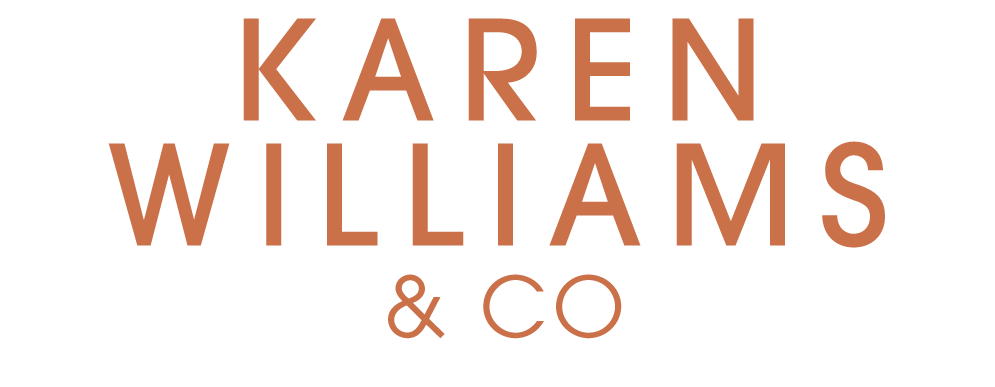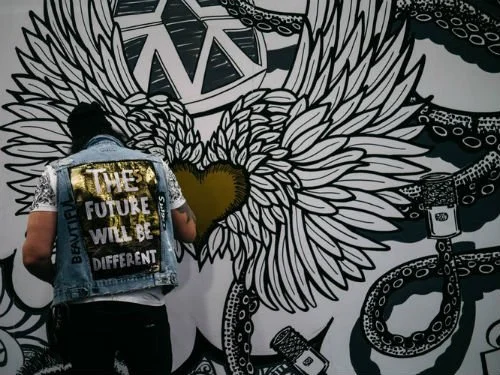What Men Want
Recently I was speaking to a group of women at a women's leadership summit about how to lead through presence, authentic confidence and self-awareness. In the room of 100 women, there were also 6 men attending. Over a networking drink after the event, I asked the men what brought them here and their responses surprised me, more on this later.
As I was sharing with the larger group about how to move from feeling stressed and exhausted, to feeling powerful and influential, I asked the men if this challenge resonated with them.
The answer was a solid "Yes". They experienced the same struggle. At times feeling isolated due to high stress and then profoundly challenged with how to become present and centred again.
Through coaching women and men in leadership for many years, I have learned that while there are significant differences between how we feel, how we process those feelings and how we connect, there are also significant similarities in what we seek and yearn.
This might seem obvious, we are both human after all, but if we consider for a moment how some of the conversations for women's empowerment are disempowering men it may serve us (and the healthy, respectful future we want to create), to remember we all have our struggles.
Tarana Burke, the woman who started the #metoo movement, was quoted by Brene Brown in her book 'Dare to Lead'...as saying that the #metoo movement was not created as a women's empowerment movement, rather it is a human rights movement.
In her article 'Another Side of #MeToo: Male Managers Fearful of Mentoring Women', Katrina Bennhold, correspondent for the New York Times, shares that while #metoo has empowered women to speak up about harassment in the workplace and forced companies to take the issue more seriously, one unintended consequence is that men have become disempowered in how to support and work with women.
As we evolve, our expectations of men have expanded into wanting them to share their feelings easily and prolifically, listen more intently and communicate with ease. Yet this is not necessarily what comes naturally to men, or what they need or want to make sense of what's occurring within and around them.
Katrina quotes Marc Pritchard, chief brand officer of Procter & Gamble, '...men also need “safe spaces” to air their confusion and concerns.'
Through my coaching, I've come to understand how deeply men feel, yet how challenged they can sometimes be in navigating these depths in ways that are healthy and restorative for them and those around them.
When men, like women, aren't supported in how to cultivate a healthy relationship with themselves in ways that feel comfortable for them and meet their needs, it's unfair to expect them to co-create healthy relationships with anyone else.
Just as the imbalance in power has impacted both women and men, the source of the imbalance is also found in men and women.
The calling out of toxic masculinity through movements such as #metoo has given power to what were silent voices. But just as the imbalance in power has impacted both women and men (remembering #metoo is a human rights movement, not a women's movement), the source of the imbalance is also found in men and women.
Toxic masculinity is not quarantined to men alone. If you've read my recent article on Redefining Femininity in Leadership, you'll have an awareness that masculine and feminine energy lives within all of us, including the healthy and unhealthy expressions of both.
Women, in our need to control, in our relentless determination to succeed, to prove, to achieve, to win, we can push ourselves into an unhealthy expression of our masculine energy by becoming dominating or even aggressive.
I have shown up this way in the past in my prove-at-all-costs mindset, and have since coached many women who had learned to live and lead from their unhealthy masculine, exhausting themselves and causing distrust in their people, in the process.
Toxic, or unhealthy masculinity, is something we can transition out of. If we are to evolve through the separateness into mutual respect of the complementary gifts within us, it is important we understand what women and men need, to change.
In a Harvard Business Review article by Wendy Murphy, men are beginning to pull back from investing in the development of women, and for my mind that's an understandable response. Without a strong self-awareness and emotional intelligence, men are not equipped to effectively navigate what can be a fragile landscape.
In addition to a fear of false sexual harassment claims, men are reluctant to engage in mentoring and collaborating with women due to backlash experienced from other men for being "less masculine", and from women who are skeptical of men's motives or resentful at the label 'champion' given just showing up and being respectful.
The men I spoke to at the women's leadership summit that day, shared with me they were there to show their full support of the women in their lives - their coworkers, their boss and women in general. But in a group of 100 women, this handful of intelligent and engaging men shared they felt hesitant to contribute to the conversation, unsure of whether to speak up and offer their questions and thoughts, unclear if it was their place, not wanting to overshadow or take away from the conversation. Their honesty cut through what we can easily internalise as a women's movement, a powerful reminder of how men are seeking clarity in how to show up, serve and co-create.
It's a challenging time for men, heavy with expectations that they understand how to lead and mentor women, even if they haven't been equipped with the skills to do so. It's a responsibility, however, that all men are now being called to lean into, investing in their emotional development so that they may learn how to support and partner women to grow and succeed.
This is not an either/or situation. Change rests on the shoulders of both men and women - an interdependent responsibility to identify and unravel the unhealthy energies within us, as well as between us.
As women, it's our responsibility to cultivate and draw on our courage, wisdom and self-trust to offer guidance, feedback and appreciation to men. It's also our responsibility to use our voice and learn how to initiate expectation and accountability conversations.
Without us all doing the personal work we will continue to foster blame, fear, disempowerment and resentment and grow further apart.
While we search for and work toward equality in respect, recognition, pay and rights, it's important we remember that the path toward healthy relating may not be equal. Men and women are similar, but we are also different, and have different ways of learning, processing and understanding.
Honouring these differences will support us to find the place of equality we are looking for.
In trust,
Karen.
And when you're ready, here are 3 ways we can help:
1. Receive our White Paper - Speed Business Up Building Trust (email karen@karenwilliams.com)
2. Book us for a complimentary Lunch and Learn presentation with your team. Topics include:
Creating a culture of accountability
How to have difficult conversations with confidence
Building a united high performing team.
3. Work with us in our Leadership Excellence team training programs. Email us for a brochure to learn more.
***
The breadth of Karen’s coaching career spans over two decades, working across industry with more than 70 organisations.
Karen supports people to thrive using her framework for High Performance Teams, upheld by the 3 foundational pillars of Personal Leadership and Accountability, Courageous Conversations and Alignment to a Compelling Vision.
A highlight in Karen’s career is her work in the youth justice system facilitating difficult conversations between offenders and victims. This restorative practices methodology weaves its way through Karen’s work with teams, helping people identify blind spots in their personal responsibility, collaborate with confidence within and across business functions, and elevate their performance and results.
Karen’s clients appreciate her incomparable insightfulness, honest and direct communication, positive energy, practical application and outcome focus.


